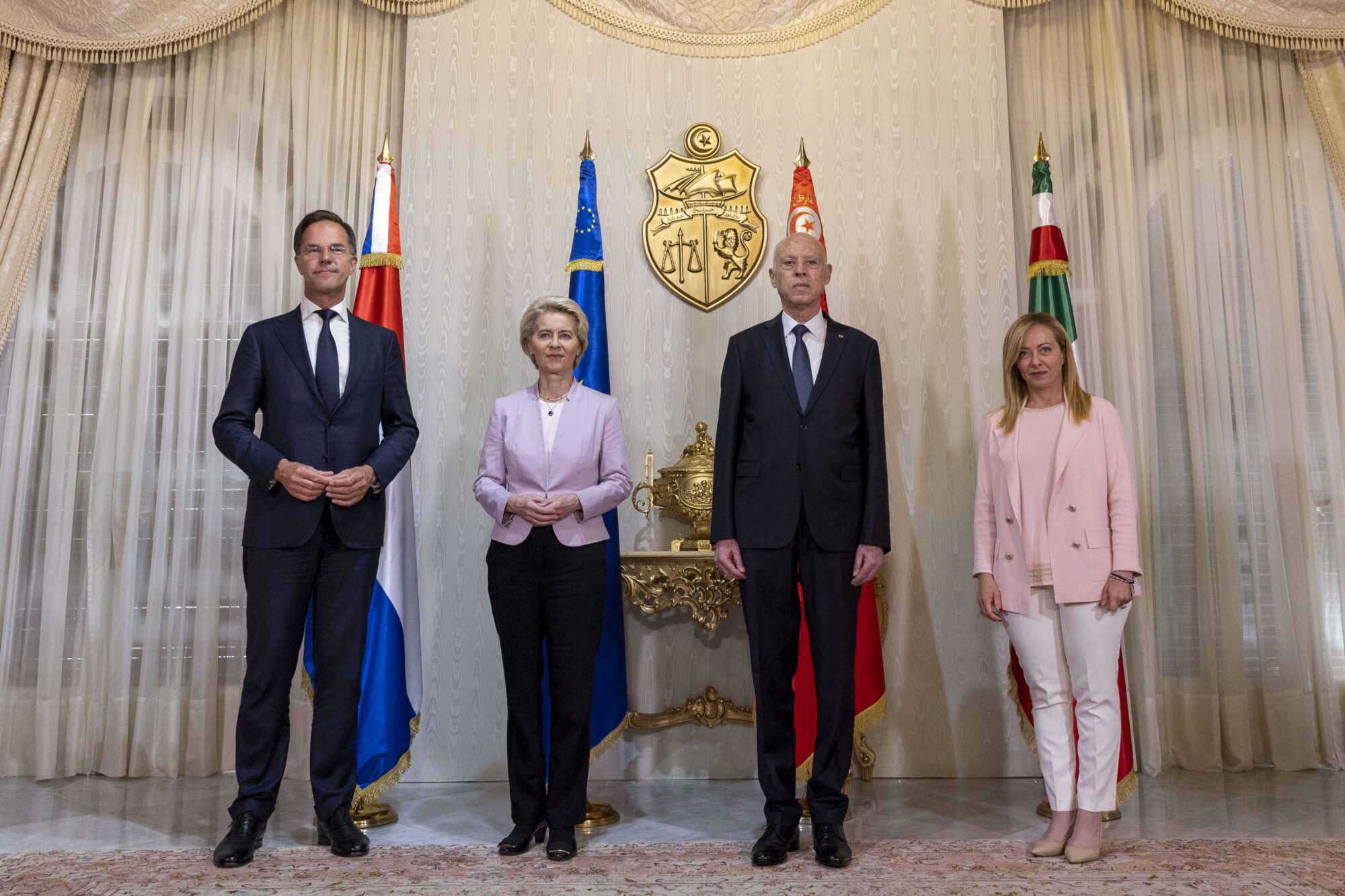
From left to right: Dutch PM Mark Rutte, EU Commission President Ursula von der Leyen, Tunisian President Kais Saied, and Italian PM Giorgia Meloni in Tunis, June 11th.
The European Union is ready to support Tunisia with over €1 billion of financial aid in return for ramping up border control and introducing new measures against human smugglers on the Central Mediterranean “as soon as the necessary agreement is found,” Commission President Ursula von der Leyen promised during her trip to Tunis on Sunday, June 11th, Politico reported, after landmark agreements were reached on the EU’s new Migration Pact a few days prior.
Brussels is considering a loan of up to €900 million in macro-financial assistance, and “as an immediate step we could provide up to €150 million in budget support right now,” the Commission chief underlined at Sunday’s joint press conference with Italian Prime Minister Giorgia Meloni and Dutch PM Mark Rutte who accompanied her on the trip.
We are here as Team Europe to mark an important milestone in the relationship between the EU and Tunisia.
— Ursula von der Leyen (@vonderleyen) June 11, 2023
We are working with Tunisia on a comprehensive 5-pillar package. https://t.co/96E4jaY0if
Although curbing migration was the primary reason the high-level delegation crossed the Mediterranean, other issues were also on the table during the trio’s meeting with Tunisian President Kais Saied.
After the discussion, von der Leyen announced the EU will come up with a “comprehensive five-pillar package” on cooperation with Tunisia, which will include “increased trade and investment” and “mutually beneficial energy cooperation.”
On the migration front, the EU was also ready to provide Tunisia with €100 million directly for border management, search and rescue, anti-smuggling measures, and other anti-migration initiatives, von der Leyen said.
Brussels’s generosity is not incidental, in any case. Just ahead of the meeting, President Saied made sure that the delegation knows Tunisian assistance will not be cheap. “The solution will not be at the expense of Tunisia,” Saied said on Saturday, adding that his country can’t afford to be Europe’s border guard.
Indeed, Tunisia’s public debt was downgraded again on Friday, from CCC+ to CCC-. This gets the country closer to the default that the EU can’t risk happening if it wants to have a chance to stop human smugglers on the Tunisian shores.
Tunisia’s poor economic prospects are also the reason there is another $1.9 billion IMF loan waiting to be greenlit, stalled currently as the Fund expects Tunis to move forward with certain human rights reforms.
The EU delegation’s trip is also a follow-up on Brussels’ landmark decisions on the new Migration Pact last week, on which Italy only signed off after the targeted anti-migration financial assistance to Tunisia was added to the deal. After all, paying the country to stop smugglers was the second best thing Rome could get after other EU members wouldn’t let it deport migrants back to Tunisia because of its poor track record of human rights.
